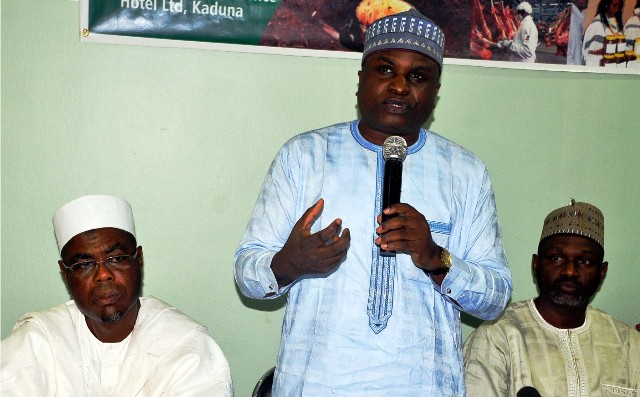Business
INTELS Reacts To Pilotage Agreement Termination Plan

INTELS Nigeria Ltd says the Nigerian Ports Authority (NPA) did not give the organisation room to address issues raised by the introduction of the Treasury Single Account (TSA) in the execution of its pilotage agency agreement.
INTELS’ spokesman, Mr Bolaji Akinola said this in a statement issued in Lagos last Tuesday in reaction to NPA’s insistence to terminate the pilotage agency agreement with the firm.
The Managing Director of NPA, Ms Hadiza Usman had told newsmen in Lagos that the organisation was in support of the advice of the Attorney-General of the Federation (AGF) and Minister of Justice, Malam Abubakar Malami that the boats pilotage monitoring and supervision contract with INTELS be terminated.
Usman said that INTELS refused to comply with the directive to pay into the TSA.
Akinola said that the issues arose because the pilotage agency agreement signed in 2010, did not envisage the TSA and as such did not factor it in its implementation.
He explained that INTELS borrowed 1.4 billion dollars (N428.4 billion) from banks to execute the agreement with the understanding that the debt would be offset from monies realised from the pilotage services paid directly to the banks.
The INTELS spokesman said that series of meetings, letters and proposals on how to resolve the TSA imbroglio was rejected by the managing director of NPA.
He recalled that on May 5, INTELS sent a letter to NPA proposing the opening of a jointly-signed account between the company and NPA into which the boat service revenues would be paid.
Akinola said that the proposal, like many others was turned down.
He also faulted claims by NPA that the contract was terminated based on the advice of the Attorney-General of the Federation and Minister of Justice.
“At what point are revenues eligible to be paid into the Consolidated Revenue Fund?
“NPA acting on behalf of the Federal Government entered into a profit-sharing agreement with INTELS for 72 per cent of the revenue to go to NPA while 28 per cent is for INTELS.
“The objective interpretation of the Constitution should be that the revenue due to the Federation should be the 72 per cent due to NPA,’’ he said.
Akinola said that NPA could not fault INTELS in the execution of the contract, which was handled most diligently.
Business
Customs Seek Support To Curb Smuggling In Ogun

Business
IFAD: Nigeria Leads Global Push For Youth, Women Investment In Agriculture
Business
Expert Tasks FG On Food Imports To Protect Farmers

-

 Politics2 days ago
Politics2 days agoAPC Releases Adjusted Timetable For Nationwide Congresses, Convention
-

 Sports5 days ago
Sports5 days agoHammers Beat Burnley To Boost Survival Chances
-

 Business2 days ago
Business2 days agoCustoms Seek Support To Curb Smuggling In Ogun
-
News1 day ago
Police Bust Kidnapping Syndicate In PH
-
Sports1 day ago
DG NIS Wants NSC Board Constituted, Seeks Increased In Funding
-
Sports2 days ago
Falcon Players Prepare For Title Defense
-
Sports1 day ago
NSC Disburses N200m Training Grants To 26 Athletes
-
Sports1 day ago
‘NTF Will Build On Davis Cup Success For Brighter Future’

